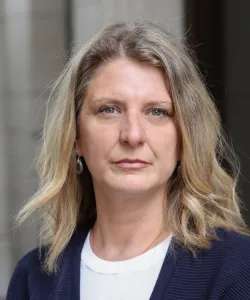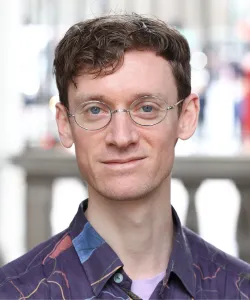Two new online Master's programmes - MA Digital Futures and MSc Digital Economies - have been launched by the Digital Futures Institute, alongside the Department for Digital Humanities and Department for Culture, Media & Creative Industries.

Applications for two new Master's courses are now open for students to join in Autumn 2024. Available online and for part-time study, these programmes are perfect for early to mid-career professionals looking to study alongside work, as well as undergraduate students wanting to take a master's to enhance their career.
MA Digital Futures
The new MA explores ways in which technology has shaped our lives, addressing real human and social opportunities as well as challenges, limitations, and risks - whether through rapid development of AI or questions around digital privacy.
Developed with the Department for Digital Humanities and the Department for Culture, Media & Creative Industries.

"I'm delighted to launch this MA. It is only by understanding the development of historical technologies, ethics, and biases that we can better question the development of technologies for a more equitable and beneficial future."
Dr Giota Alevizou, Joint Programme Director & Lecturer in Digital Humanities and Culture

"Students will benefit from the expertise of two world-leading Departments and the Digital Futures Institute. Delving into cultural and technological case studies, the MA is grounded in contemporary society and engages students with the latest developments in industry and research."
Dr Rob Gallagher, Joint Programme Director & Lecturer in Games and Immersive Media






